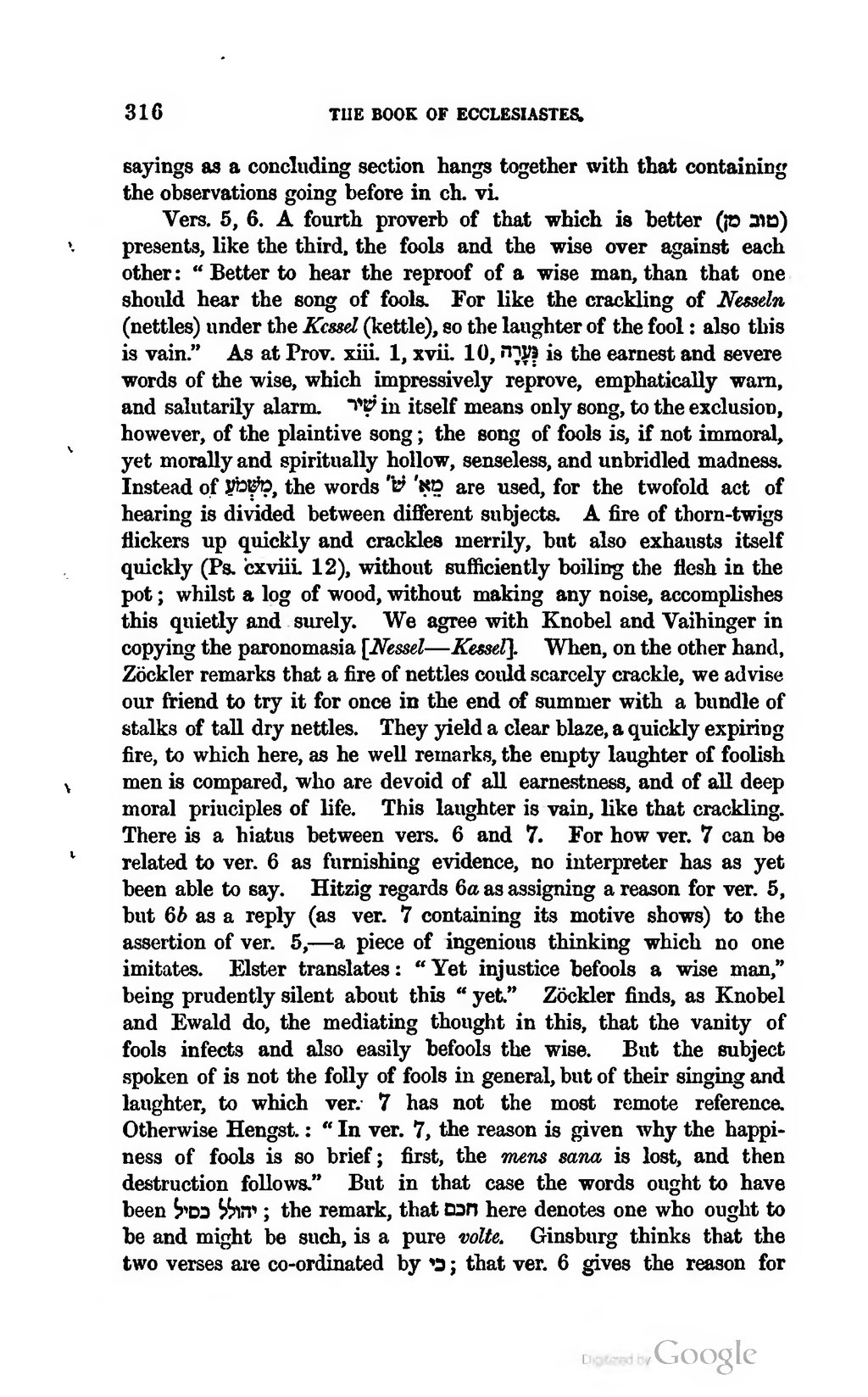sayings as a concluding section hangs together with that containing the observations going before in Ecc 6:1-12.
Verses 5-6
A fourth proverb of that which is better (מן טוב) presents, like the third, the fools and the wise over against each other: “Better to hear the reproof of a wise man, than that one should hear the song of fools. For like the crackling of Nesseln (nettles) under the Kessel (kettle), so the laughter of the fool: also this is vain.” As at Pro 13:1; Pro 17:10, גּערה is the earnest and severe words of the wise, which impressively reprove, emphatically warn, and salutarily alarm. שׁיר in itself means only song, to the exclusion, however, of the plaintive song; the song of fools is, if not immoral, yet morally and spiritually hollow, senseless, and unbridled madness. Instead of משּׁמע, the words מא שׁ are used, for the twofold act of hearing is divided between different subjects. A fire of thorn-twigs flickers up quickly and crackles merrily, but also exhausts itself quickly (Psa 118:12), without sufficiently boiling the flesh in the pot; whilst a log of wood, without making any noise, accomplishes this quietly and surely.
We agree with Knobel and Vaihinger in copying the paronomasia [Nessel-Kessel]. When, on the other hand, Zöckler remarks that a fire of nettles could scarcely crackle, we advise our friend to try it for once in the end of summer with a bundle of stalks of tall dry nettles. They yield a clear blaze, a quickly expiring fire, to which here, as he well remarks, the empty laughter of foolish men is compared, who are devoid of all earnestness, and of all deep moral principles of life. This laughter is vain, like that crackling.
There is a hiatus between Ecc 7:6 and Ecc 7:7. For how Ecc 7:7 can be related to Ecc 7:6 as furnishing evidence, no interpreter has as yet been able to say. Hitzig regards Ecc 7:6 as assigning a reason for Ecc 7:5, but 6b as a reply (as Ecc 7:7 containing its motive shows) to the assertion of Ecc 7:5, - a piece of ingenious thinking which no one imitates. Elster translates: “Yet injustice befools a wise man,” being prudently silent about this “yet.” Zöckler finds, as Knobel and Ewald do, the mediating thought in this, that the vanity of fools infects and also easily befools the wise. But the subject spoken of is not the folly of fools in general, but of their singing and laughter, to which Ecc 7:7 has not the most remote reference. Otherwise Hengst.: “In Ecc 7:7, the reason is given why the happiness of fools is so brief; first, the mens sana is lost, and then destruction follows.” But in that case the words ought to have been כסיל יהולל; the remark, that חכם here denotes one who ought to be and might be such, is a pure volte. Ginsburg thinks that the two verses are co-ordinated by כי; that Ecc 7:6 gives the reason for Ecc 7:5, and Ecc 7:7
